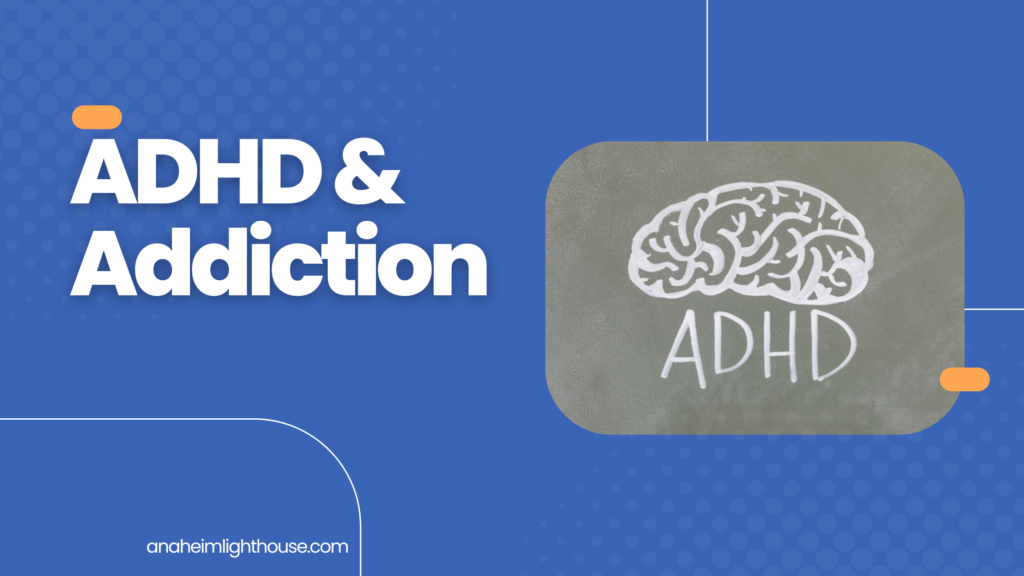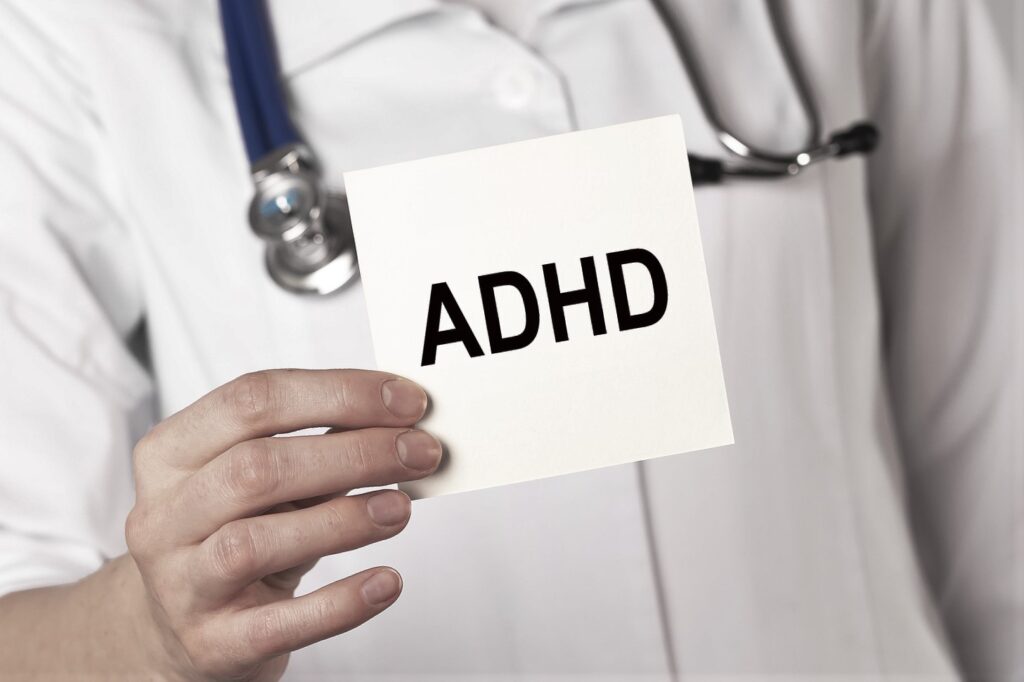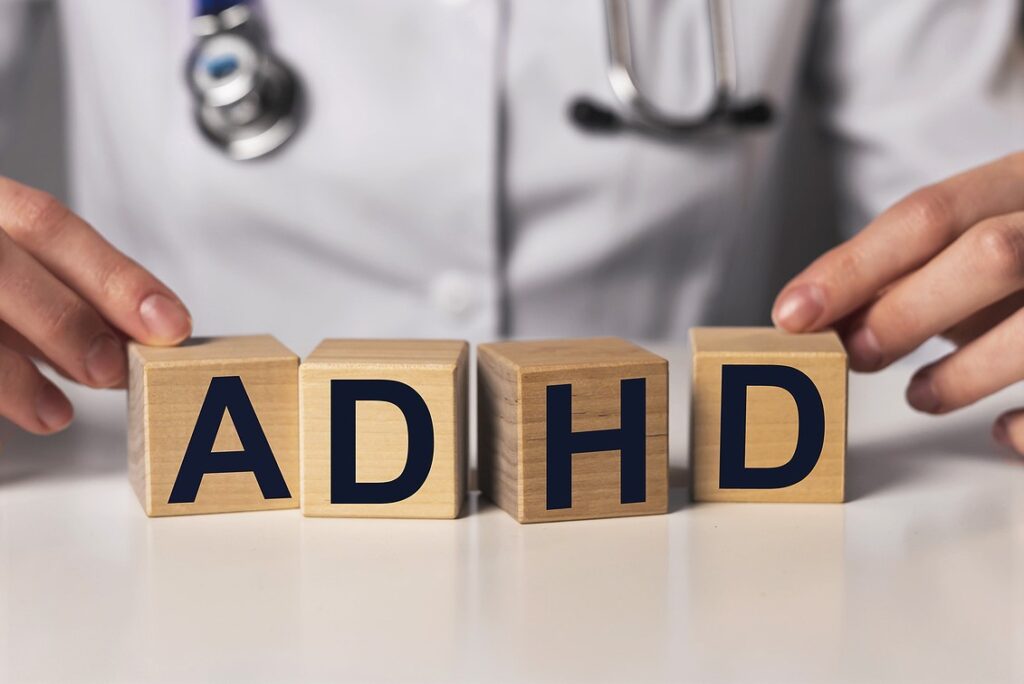ADHD And Addiction
Attention-Deficit/Hyperactivity Disorder (ADHD) and addiction are both common mental health disorders that can cause significant impairment in daily life. While the two conditions are distinct, they often occur together.
The interplay between substance addiction and mental illness like ADHD is complex. This can make treatment more complicated and may require specialized care.
It’s important to let your doctor or therapist know if you have either ADHD, an anxiety disorder, or another co-occurring condition so that they can address it specifically at the same time.
In this article, we’ll explore the relationship between ADHD and addiction, and share some insights for managing both conditions.
Defining Attention Deficit Hyperactivity Disorder (ADHD)
Attention-Deficit/Hyperactivity Disorder (ADHD) is a mental illness characterized by an inability to focus and control behavior. ADHD can cause problems in school, work, and personal relationships. People with ADHD may also have problems with impulsiveness and hyperactivity.
There is no one cause of ADHD, but it is believed to be caused by a combination of genetic and environmental factors. Some common treatments for ADHD include medication, therapy, and lifestyle changes.

Connection Between Substance Addiction and ADHD
Many people with ADHD self-medicate with alcohol or drugs to help them focus or calm down. In some cases, people may start abusing prescription ADHD medications because they provide a feeling of euphoria and relaxation. However, these substances can quickly become addictive and can lead to drug addiction. This is because they are also used as a coping mechanism when people find it difficult to manage their symptoms.
When someone has ADHD, they may feel as though they are unable to control their own lives and this can lead to feelings of anxiety and stress. This can lead to other problems like poor decision-making, relationship difficulties, and job loss. People with ADHD are also more likely to suffer from other mental health conditions, which can increase the risk of addiction.
Is It Possible to Treat ADHD with Smoking?
Smoking tobacco or cigarettes has helped some people with ADHD to maintain focus. However, medical experts have never advised nicotine smoking as a viable method to treat this mental condition.
Nicotine has more negative health impacts compared to its benefits of easing ADHD. Medical records showed that around 48.5 percent of ADHD patients who smoked remained nicotine dependent, and only 29 percent were able to quit smoking.
Below are some health consequences of smoking nicotine:
- Intensifies depression and anxiety
- Dependence on nicotine for the brain to work
- Withdrawal symptoms
- Brain damage due to smoking
Can Drinking Alcohol Help Treat ADHD?
Some people with ADHD drink alcohol to help them focus or calm down. However, this is not an advisable method as it can lead to alcohol addiction.
ADHD patients will only experience short and temporary relief and relaxation when drinking alcohol. The adverse effects of alcoholism far weigh more than its perceived benefits for ADHD alleviation.
People with ADHD who abuse alcohol are more likely to experience negative consequences. In addition, they are also at a higher risk for developing liver disease,
Below are some of the common setbacks of alcoholism:
- Lack of energy and enthusiasm
- Alcohol withdrawal symptoms
- Higher risk for addiction and relapse
- Depression
- Increased risk of being loud and violent
- Higher risk for liver disease and other health problems
Statistics of Addiction and Alcoholism for People with ADHD
Based on medical studies and records, it was found that most people with ADHD are five to ten times more likely to develop alcoholism and smoking habits. Around 25 percent of the people with addiction are diagnosed with ADHD.
In terms of smoking, people with ADHD are three times more prone to having smoking habits and around 1.5 times more likely to gain nicotine dependence. Moreover, they also have a higher chance of using marijuana because of the relaxing effect of its active ingredient tetrahydrocannabinol (THC).
Here are some statistical data showing the number of incidence of Addiction, Alcoholism, and ADHD in the United States
- In the Mid-Atlantic area, around 7 percent of students with ADHD are reported to have abused substances
- Ages 15 to 17: 14 percent have ADHD and suffer from alcoholism and addiction
- Around 40 percent of children ages 15 years are reported to drink alcohol
- Of the population of people with ADHD, around 25 percent suffered from alcoholism and addiction
Treatment Options for ADHD
Self-medication of ADHD is never recommended because it can lead to alcoholism and substance abuse. The best way to treat this mental condition is by asking for medical advice from a licensed doctor, physician, or therapist.
Here are some of the best psychological treatments for ADHD:
Dual Diagnosis Treatments
A Dual Diagnosis Treatment is for patients suffering from both ADHD and addiction. This type of specialized program can address both conditions at the same time. By making sure
that both conditions are being treated, the patient has a higher chance of achieving long-term sobriety.
Cognitive Behavioral Therapy (CBT)
This is a type of therapy that helps people improve their thinking and behavior. The therapist helps people regain their concentration and memory skills, as well as their communication skills (verbal and non-verbal). CBT also helps people rebuild their social skills so they can rejoin society.
Psychoeducation Therapy
Psychoeducation Therapy is a treatment that helps patients understand their mental condition and how it affects their lifestyle. This therapy also helps patients learn about Children and Adults with Attention Deficit Disorder (CHADD) and Attention Deficit Disorder Association (ADDA).
Coping with ADHD and Addiction
People with ADHD and addiction should never self-medicate but instead, seek professional help to deal with this co-occurring condition in the most efficient way. It’s also important to find a treatment center that will be able to address both the addiction and ADHD.
If you think you need medical attention, do not hesitate to go to your nearest rehab center or medical facility that is capable of handling this situation.


